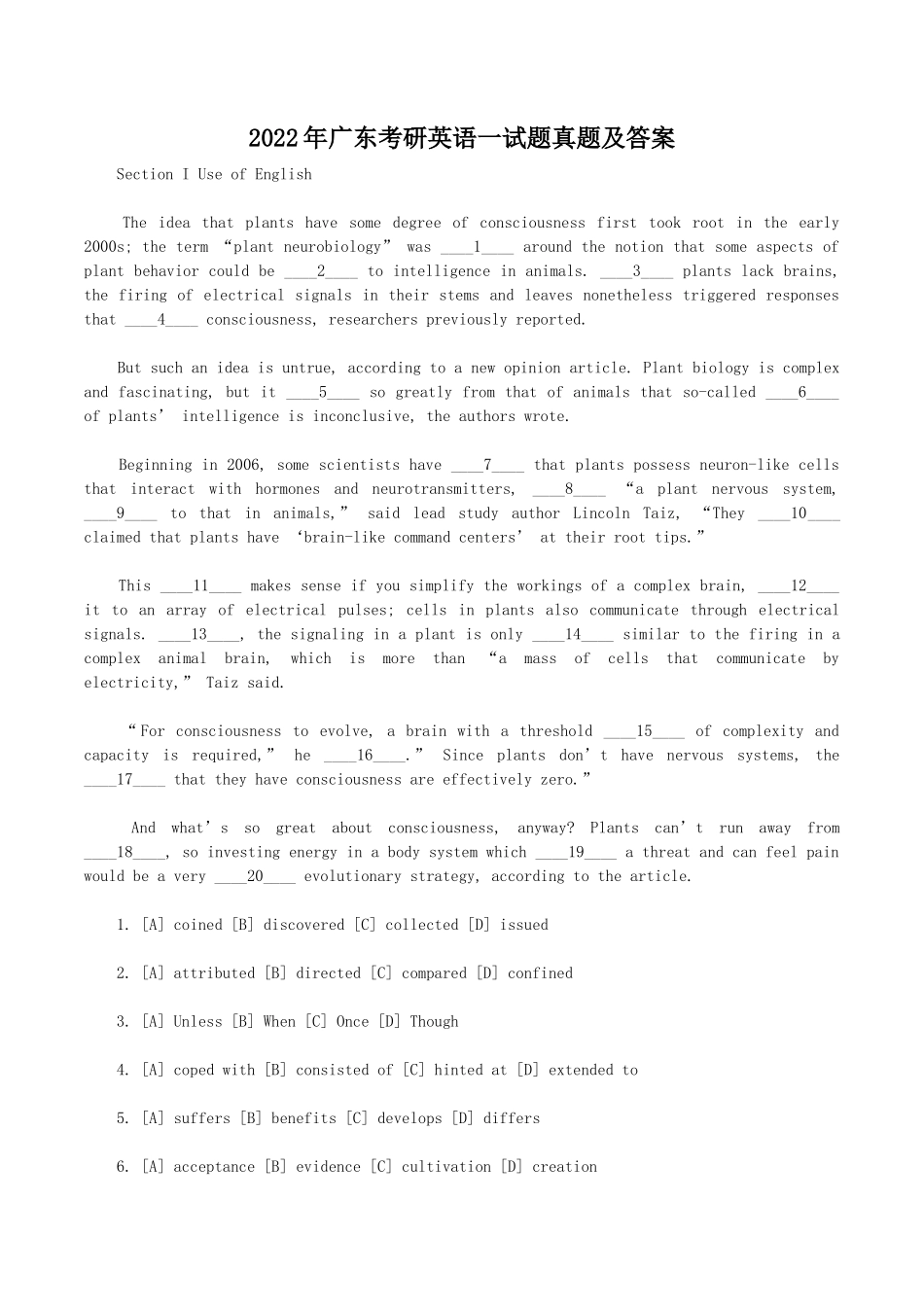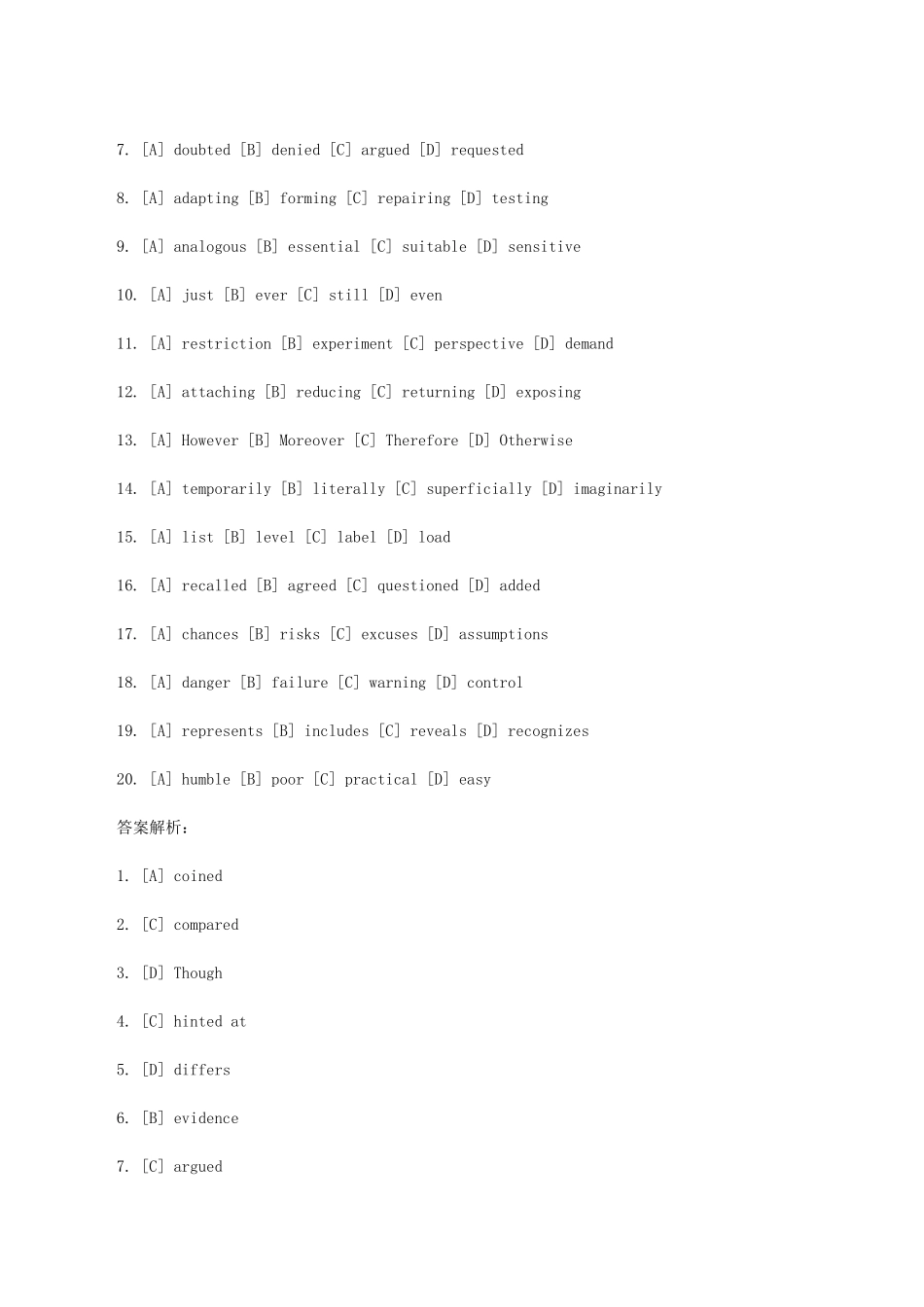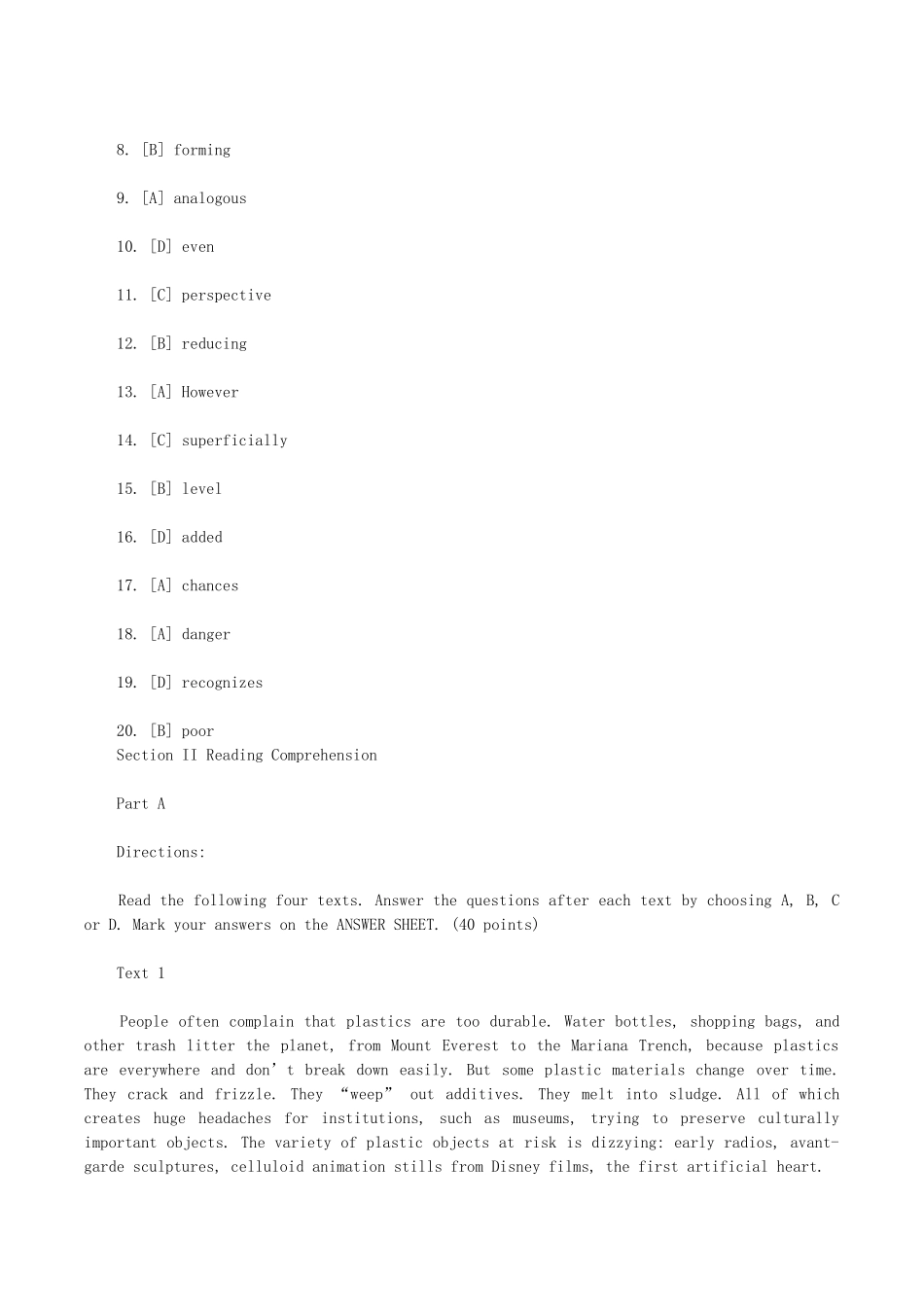2022 年广东考研英语一试题真题及答案 Section I Use of English The idea that plants have some degree of consciousness first took root in the early 2000s; the term “plant neurobiology” was ____1____ around the notion that some aspects of plant behavior could be ____2____ to intelligence in animals. ____3____ plants lack brains, the firing of electrical signals in their stems and leaves nonetheless triggered responses that ____4____ consciousness, researchers previously reported. But such an idea is untrue, according to a new opinion article. Plant biology is complex and fascinating, but it ____5____ so greatly from that of animals that so-called ____6____ of plants’ intelligence is inconclusive, the authors wrote. Beginning in 2006, some scientists have ____7____ that plants possess neuron-like cells that interact with hormones and neurotransmitters, ____8____ “a plant nervous system, ____9____ to that in animals,” said lead study author Lincoln Taiz, “They ____10____ claimed that plants have ‘brain-like command centers’ at their root tips.” This ____11____ makes sense if you simplify the workings of a complex brain, ____12____ it to an array of electrical pulses; cells in plants also communicate through electrical signals. ____13____, the signaling in a plant is only ____14____ similar to the firing in a complex animal brain, which is more than “a mass of cells that communicate by electricity,” Taiz said. “ For consciousness to evolve, a brain with a threshold ____15____ of complexity and capacity is required,” he ____16____.” Since plants don’t have nervous systems, the ____17____ that they have consciousness are effectively zero.” And what’s so great about consciousness, anyway? Plants can’t run away from ____18____, so investing energy in a body system which ____19____ a threat and can feel pain would be a very ____20____ evolutionary strategy, according to the article. 1. [A] coined [B] discovered [C] collected [D] issued 2. [A] attributed [B] directed [C] compared [D] confined 3. [A] Unless [B] When [C] Once [D] Though 4. [A] coped with [B] consisted of [C] hinted at [D] extended to 5. [A] suffers [B] benefits [C] develops [D] differs 6. [A] acceptance [B] evidence [C] cultivation [D] creation 7. [A] doubted [B] denied [C] argued [D] requested 8. [A] adapting [B] forming [C] repairing [D] testing 9. [A] analogous [B] essential [C] suitable [D] sensitive 10. [A] just [B] ever [C] still [D] even 11. [A] restriction [B] experiment [C] perspective [D] demand 12. [A] attaching [B] reducing [C] returning [D] exposing 13. [A] However [B] Moreover [C] Therefore [D] Otherwise 14. [A] temporarily [B] literally [C] superficially [D] imaginarily 15. [A] list [B] level [C] label [D] load 16. [A] recalled [B] agreed [C] questioned [D] added 17. [A] chances [B] risks [C] excuses [D] assumptions 18. [A] danger [B] failure [C...


